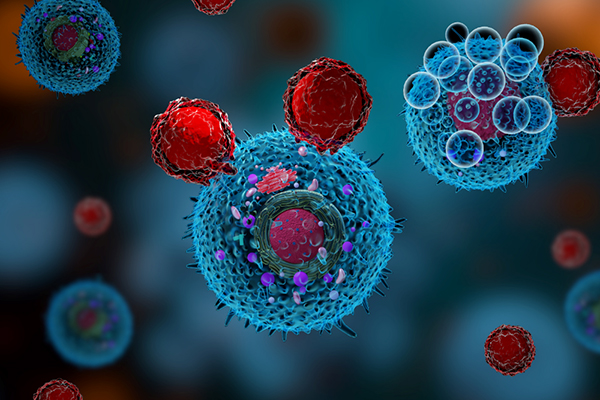Giving early-stage pancreatic cancer patients a CD40 immune-stimulating drug helped jumpstart a T cell attack to the notoriously stubborn tumor microenvironment before surgery and other treatments, according to a new study from researchers in the Abramson Cancer Center. Changing the microenvironment from so-called T cell “poor” to T cell “rich” with a CD40 agonist earlier could help slow eventual progression of the disease and prevent cancer from spreading in more patients.
The data—which included 16 patients treated with the CD40 agonist selicrelumab—was presented by Katelyn T. Byrne, an instructor of medicine in the division of hematology-oncology in the Perelman School of Medicine, during a plenary session at the American Association for Cancer Research annual meeting (Abstract #CT005).
“Many patients with early-stage disease undergo surgery and adjuvant chemotherapy. But it’s often not enough to slow or stop the cancer,” Byrne says. “Our data supports the idea that you can do interventions up front to activate a targeted immune response at the tumor site—which was unheard of five years ago for pancreatic cancer—even before you take it out.”
Read more at Penn Medicine News.








